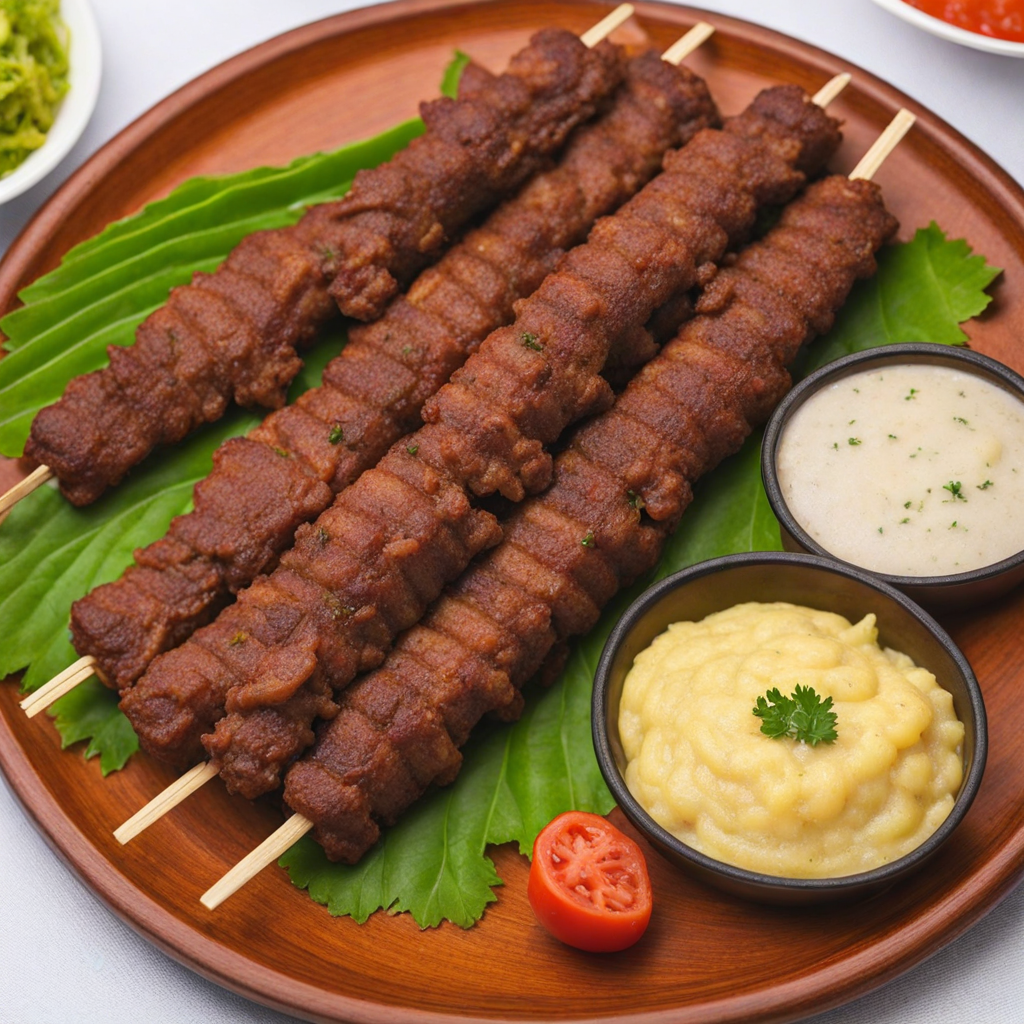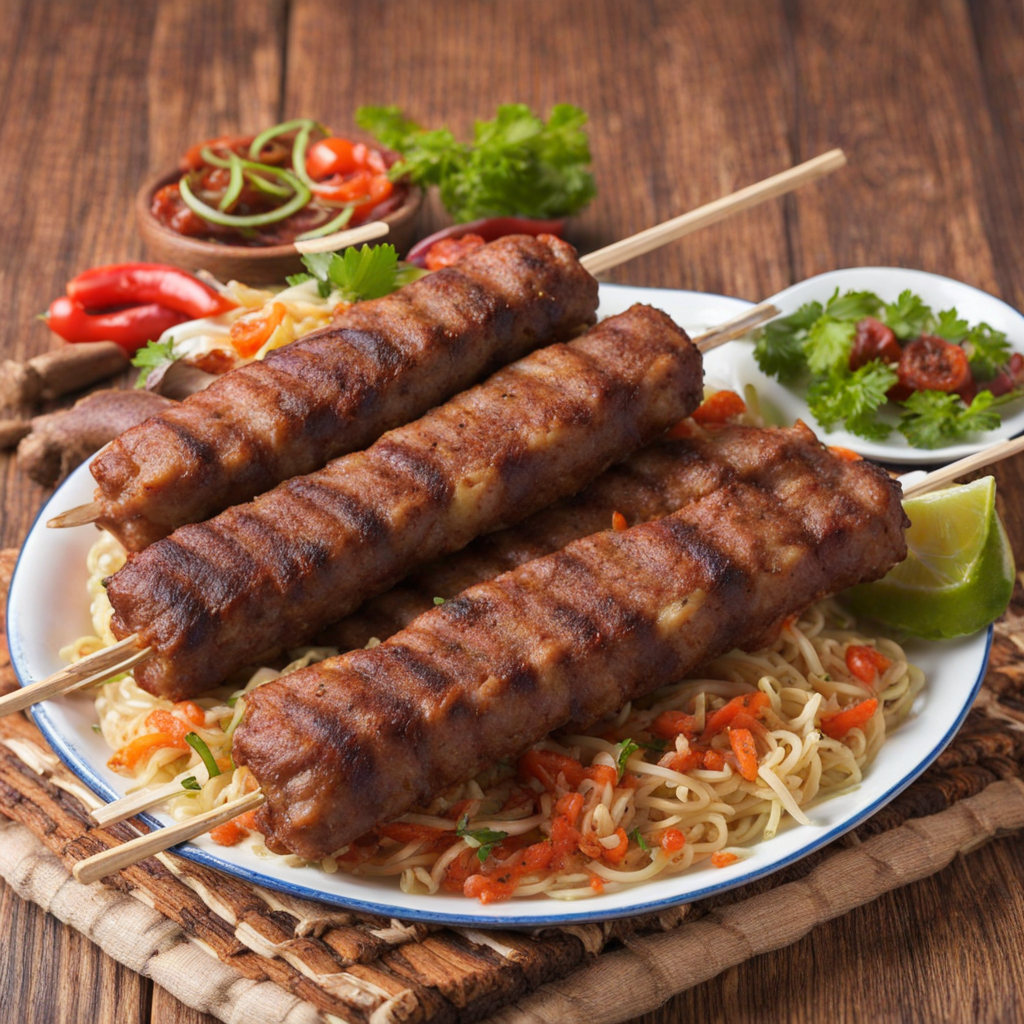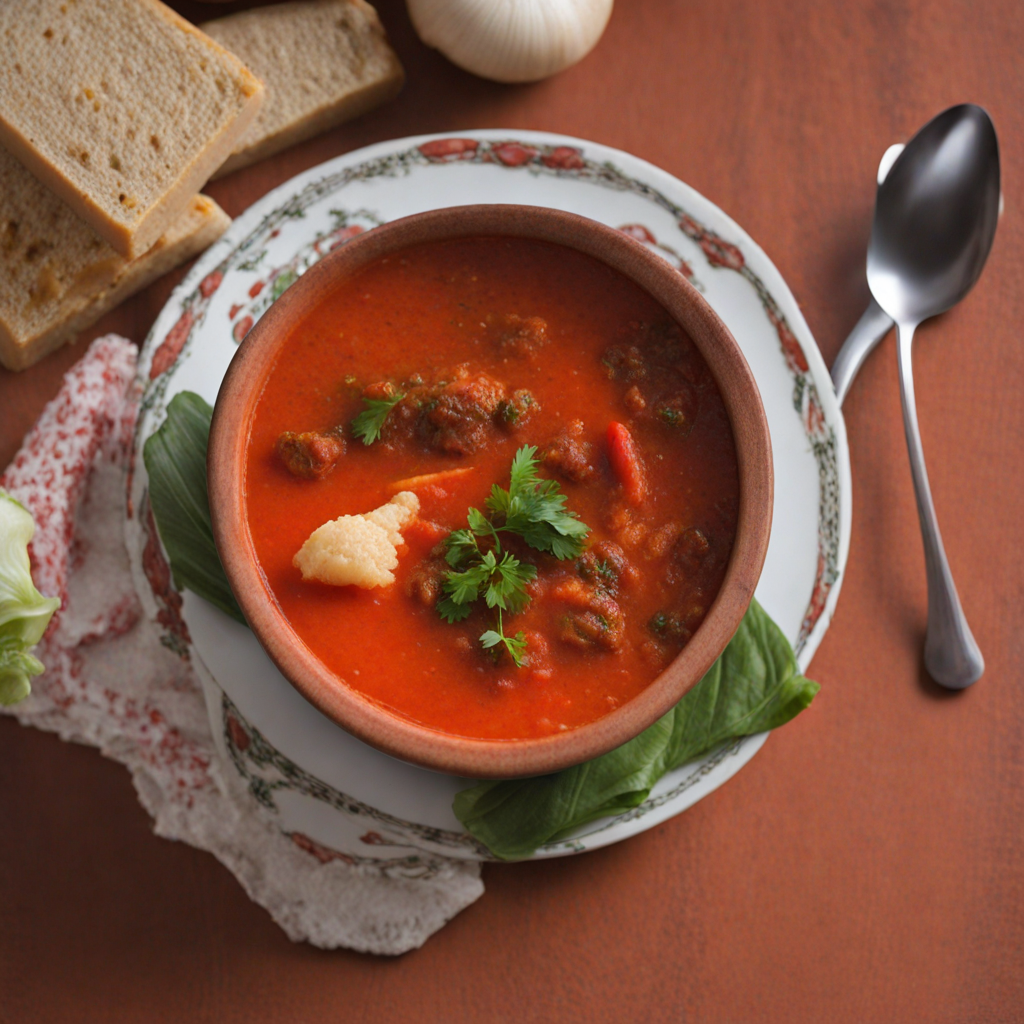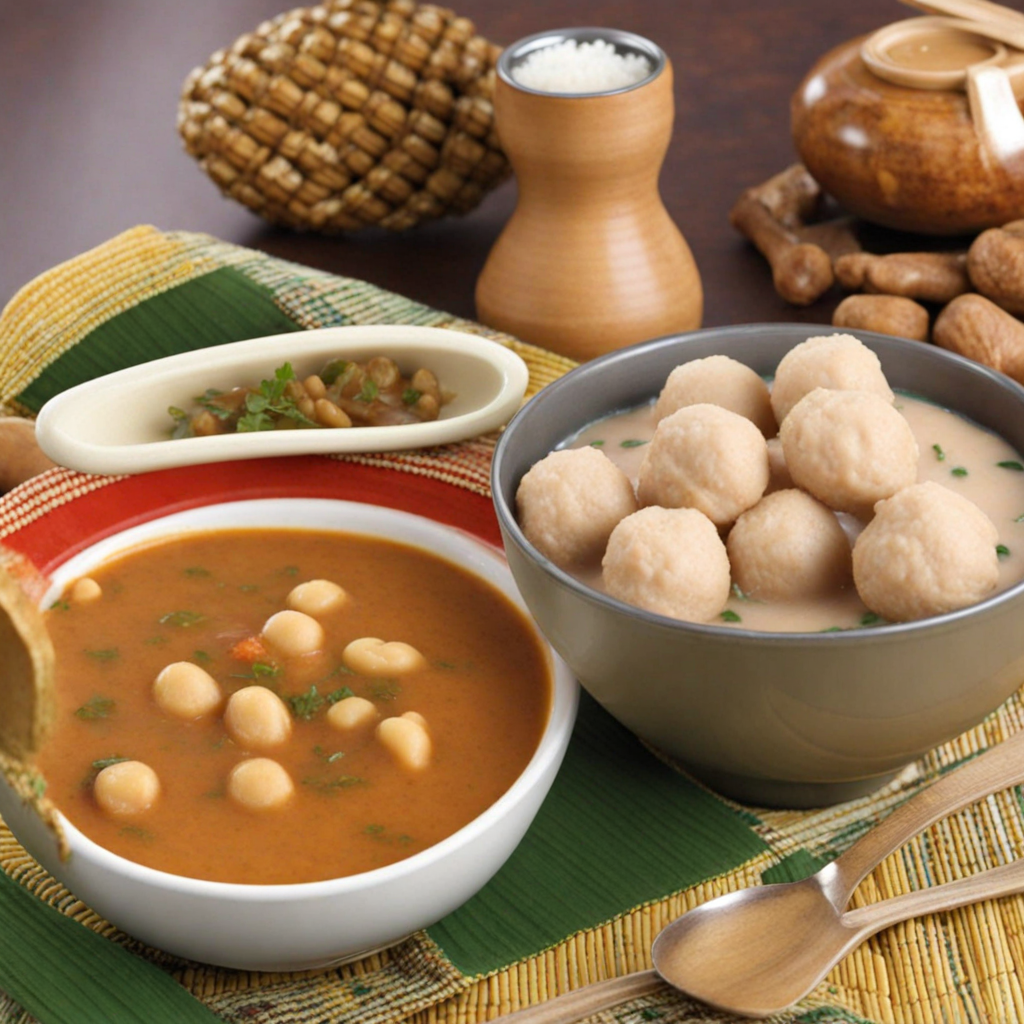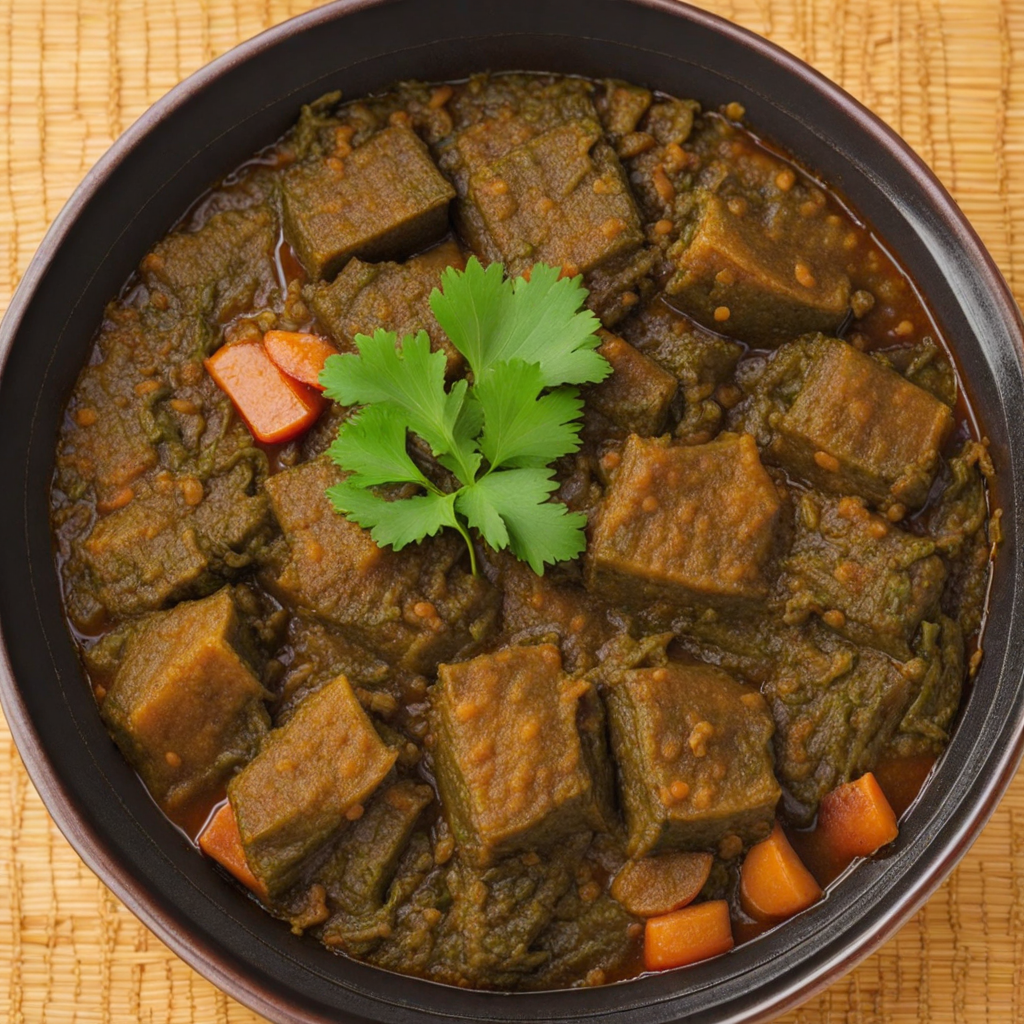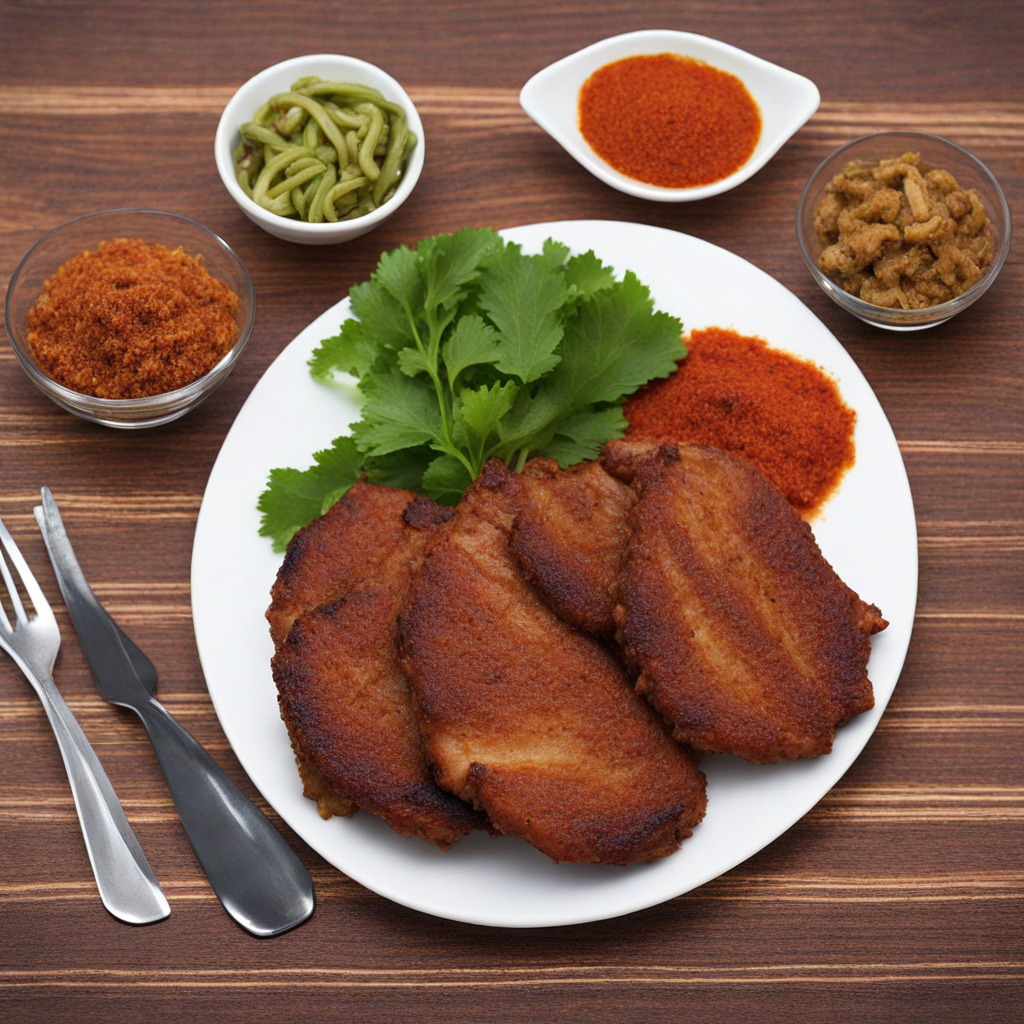Chichinga
Chichinga, often referred to as Ghanaian kebabs, is a beloved street food that encapsulates the vibrant culinary culture of Ghana. Typically made from skewered and grilled meat, Chichinga is seasoned with a blend of spicy and aromatic ingredients, giving it a distinctive flavor profile. The meat, usually beef or chicken, is marinated in a mixture that often includes groundnut (peanut) paste, chili pepper, and a variety of spices such as ginger and garlic, which work together to create a rich and savory taste. Each bite is a delightful explosion of flavors that is both spicy and comforting, making it a favorite among locals and tourists alike. The preparation of Chichinga is an art form in itself. After marinating, the meat is threaded onto skewers and grilled over an open flame, which adds a smoky depth to the flavor. As it cooks, the exterior becomes slightly charred and crispy, while the inside remains juicy and tender. Street vendors often serve Chichinga with a side of spicy pepper sauce or a tangy dip, enhancing the overall experience. The aroma of the grilling meat wafts through the air, drawing people in and making it hard to resist trying this delicious treat. Chichinga is more than just food; it's a communal experience often enjoyed in bustling markets or at roadside stalls. It’s a popular choice for casual gatherings and celebrations, embodying the spirit of togetherness in Ghanaian culture. Whether you’re savoring it as a quick snack or as part of a larger meal, Chichinga offers an unforgettable taste experience that reflects the rich heritage and culinary diversity of Ghana.
How It Became This Dish
Chichinga: The Savory Delight of Ghana Chichinga, also known as kebab or "kebabs" in the local parlance, is a cherished street food in Ghana, particularly in the bustling markets and vibrant street corners of cities like Accra, Kumasi, and Takoradi. This delectable dish, made from skewered and seasoned grilled meat, has a rich history intertwined with the cultural tapestry of Ghana, reflecting the nation’s diverse ethnic backgrounds and culinary traditions. #### Origins of Chichinga The origin of chichinga can be traced back to various influences that intermingled throughout Ghana's history. The word itself is derived from the Hausa language, a testament to the historical trade routes that crossed the region. The Hausa people, known for their expertise in meat preparation and grilling, brought their culinary techniques to West Africa, and as trade flourished, so too did the appreciation for grilled meats. Traditionally, chichinga was made from goat meat, which was a staple protein in many Ghanaian households. However, as the dish gained popularity, variations began to emerge, incorporating other meats such as chicken, beef, and even fish. The skewered meat is marinated in a blend of spices, often including chili, ginger, garlic, and onions, which impart a rich and spicy flavor that is quintessential to Ghanaian cuisine. #### Cultural Significance Chichinga is more than just a meal; it is a cultural phenomenon that plays a pivotal role in social gatherings and community bonding. The act of grilling chichinga is often a communal affair, where families and friends gather around open flames, sharing not only food but also stories and laughter. This communal aspect reflects the broader Ghanaian values of hospitality and togetherness. Street vendors selling chichinga are a common sight, often setting up makeshift grills in busy markets or along streets. The aroma of grilled meat wafting through the air draws in passersby, creating a lively atmosphere where people can enjoy a quick bite while socializing. This accessibility has made chichinga a beloved snack for all social classes, transcending barriers and uniting people through the shared enjoyment of food. Moreover, chichinga has become synonymous with festivities and celebrations in Ghana. Whether during traditional ceremonies, weddings, or public holidays, the presence of chichinga is almost guaranteed. It symbolizes not only the joy of feasting but also the importance of community and togetherness during special occasions. #### Development Over Time As Ghana's culinary landscape evolved, so did chichinga. The dish has adapted to incorporate modern flavors and techniques, reflecting both local tastes and global influences. While the traditional preparation methods remain popular, innovative vendors have started to experiment with various marinades, spices, and even cooking methods. Some now offer vegetarian versions made from mushrooms and tofu, catering to the growing demand for plant-based options. In recent years, the rise of food trucks and gourmet street food has further elevated the status of chichinga. Chefs and culinary enthusiasts have taken the humble kebab and transformed it into a gourmet experience, utilizing high-quality meats and artisanal spices. Some establishments now feature chichinga as a central menu item, served alongside an array of dipping sauces and exotic sides, thus appealing to both locals and tourists alike. The globalization of Ghanaian cuisine has also played a role in the development of chichinga. As people from various backgrounds flock to Ghana, they bring with them their culinary influences, leading to a fusion of flavors. This blending of traditions has allowed chichinga to evolve, becoming a canvas for culinary creativity that reflects the dynamic nature of Ghanaian society. #### The Modern Chichinga Experience Today, chichinga is not just limited to street corners or local markets. It has found its way into international food festivals and cultural showcases, where it is celebrated alongside other Ghanaian dishes. Chefs often showcase their unique takes on chichinga, introducing international audiences to the flavors of Ghana. The dish has gained recognition for its bold flavors and satisfying textures, earning a place among the must-try foods in Ghana. Furthermore, social media has played a significant role in promoting chichinga. Food bloggers and influencers have taken to platforms like Instagram and TikTok to showcase the vibrant street food culture of Ghana. Their posts highlight the colorful presentation of chichinga, the sizzling sound of meat on the grill, and the joyful atmosphere of street food markets. This has not only increased its popularity but has also sparked interest in Ghanaian cuisine as a whole. #### Conclusion Chichinga stands as a testament to the rich culinary heritage of Ghana. From its origins influenced by trade and cultural exchange to its current status as a beloved street food, it embodies the spirit of community, celebration, and innovation. As Ghana continues to grow and evolve, so too will chichinga—an enduring symbol of the nation's vibrant food culture. Whether enjoyed at a bustling market, a festive celebration, or even a gourmet restaurant, chichinga remains a delicious reminder of the power of food to bring people together across generations and cultures.
You may like
Discover local flavors from Ghana


